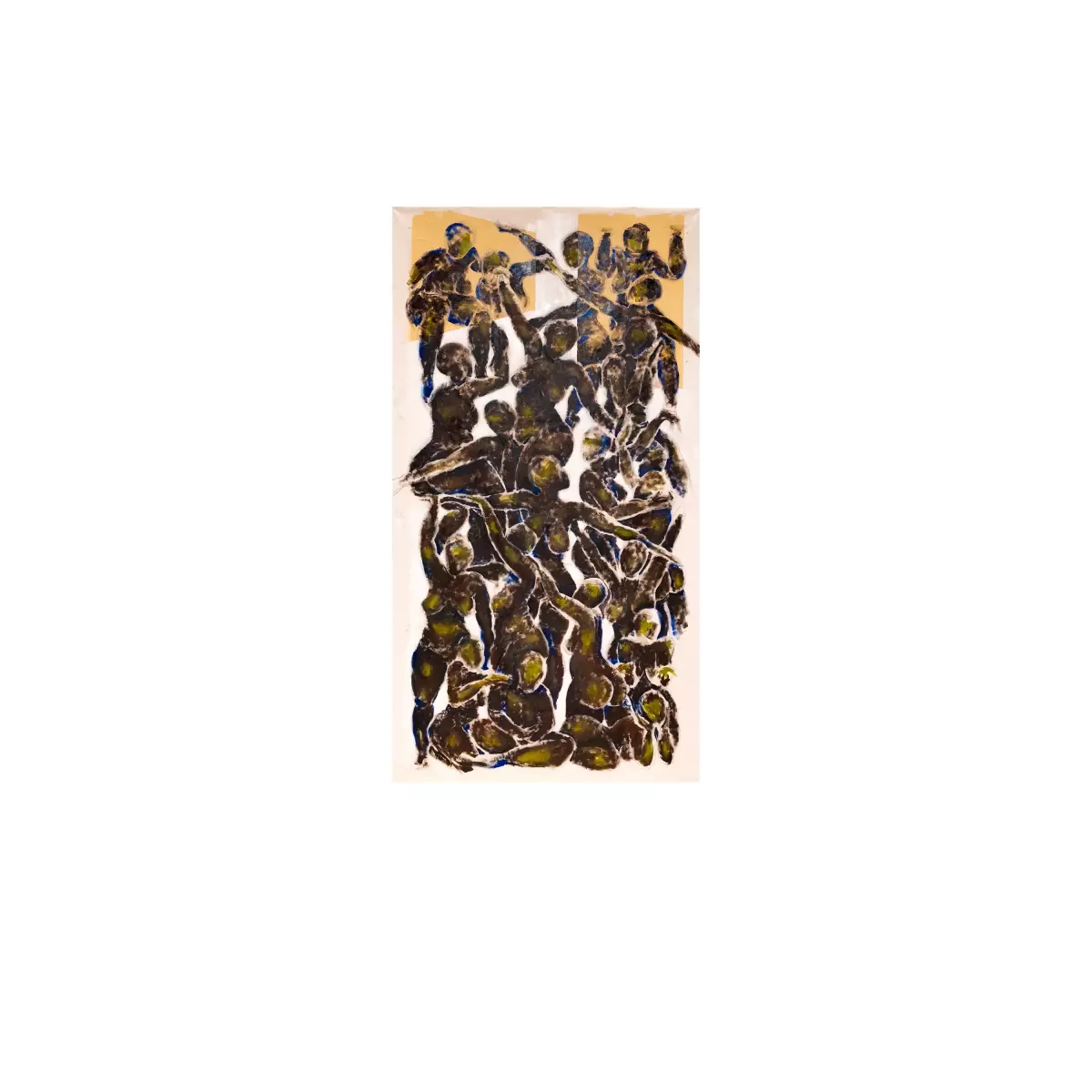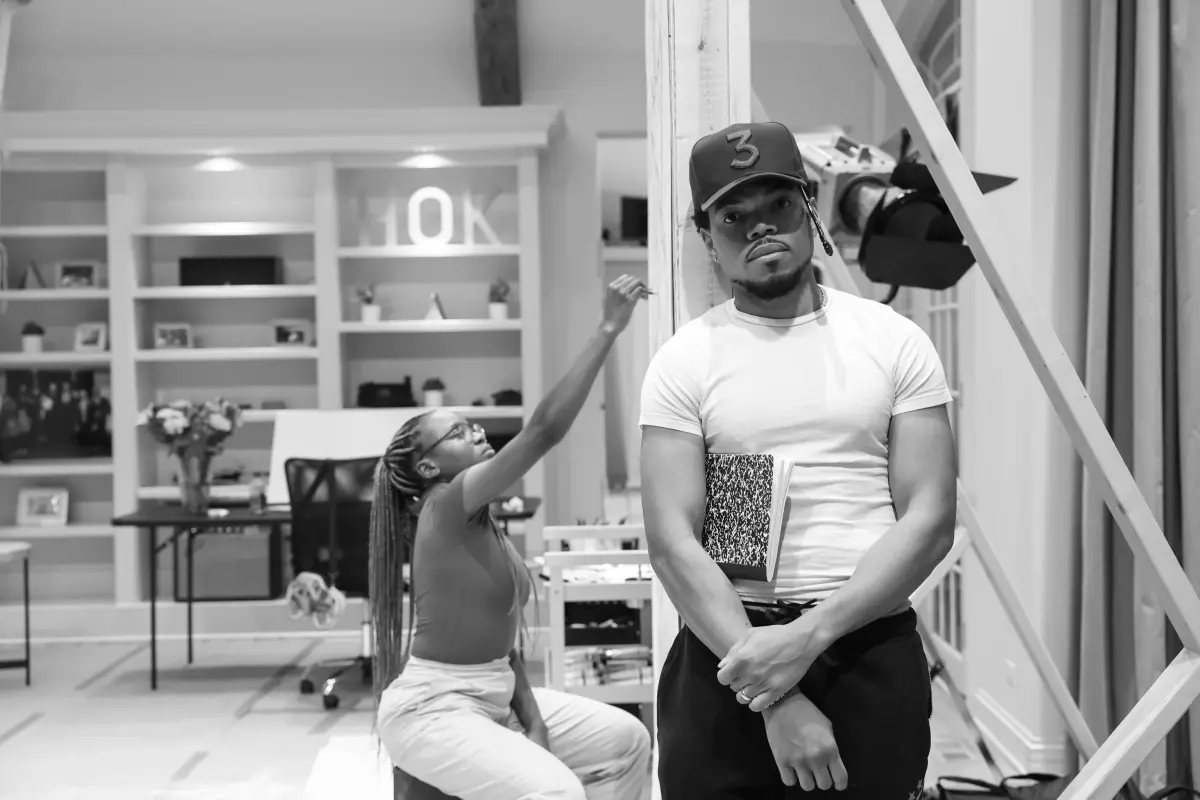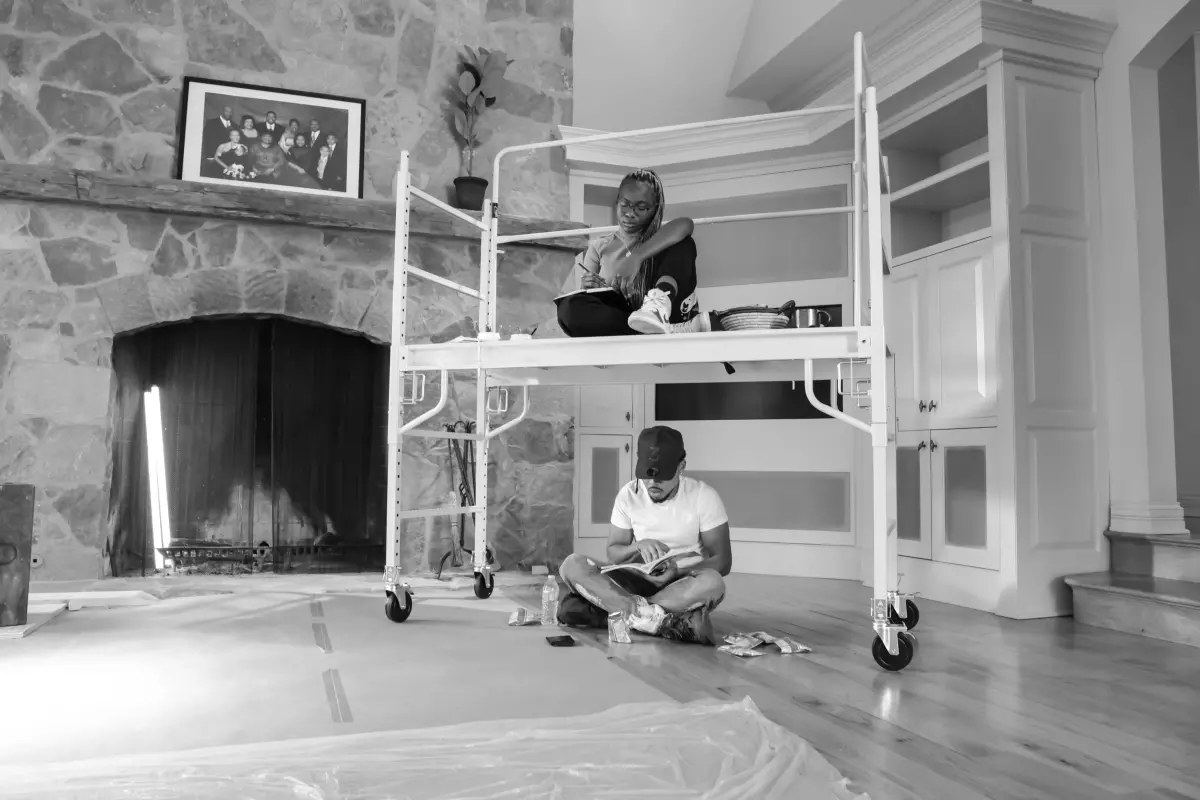Child of God: Chance the Rapper and Naïla Opiangah
March 23, 2022 - March 27, 2022

Child of God album artwork. Courtesy of Chance the Rapper and Naïla Opiangah.
About the Event
As part of the MCA’s commitment to elevating Chicago artists and the great work they make across media, the museum partnered with Grammy Award–winning artist Chance the Rapper for a special event celebrating the release of his new song and music video “Child of God,” featuring a painting by Naïla Opiangah, both of which are on view at the MCA until March 27.
Both the MCA and Chance the Rapper share a commitment to the youth of Chicago. Chance the Rapper’s youth empowerment charity SocialWorks “aims to empower the youth through the arts, education, and civic engagement.”
Similarly, the MCA’s Teen Creative Agency is a cultural leadership program for Chicago teens who come together to create, dream, envision, and transform around issues that are important to them.
Something happens when you touch down in Africa.
Something.
It’s an indescribable feeling that you don’t soon forget—the feeling of home, the feeling of peace, the feeling of community. It’s a feeling equally steeped in the familiar and the new, of seeing scores of beautiful Black people and not seeming out of place. You realize there’s creativity beneath the soil, not the despair outlined in white-leaning history books. The air hits different. The sun shines brighter. The stress of life as a Black American dissolves. Chance The Rapper learned this in December, when he trekked to Ghana and connected with the local arts scene.
There he met Naïla Opiangah, a promising young painter from Gabon with roots in Chicago and New York City. He purchased one of her pieces, then they started talking about Black art as commerce. She challenged him to become a collector of African art, not just to have the work in his home, but as a way to trumpet creators who fly under the radar. “From his perspective as an independent artist, he had this idea of collectors as people who consume the art but also consume artists,” Naïla says. “He looked at it as very capitalistic, egotistical stuff that people would do that is not for the benefit of artists.” But she assumed the best in Chance: As a Black American with a large platform, he could open doors for creators who feel rejected from the art world. “Your taking space in the art world is a way of opening the door, widening this ecosystem for more people that look like us,” she recalls saying.
Chance told her about an idea he had to pair music and art. He wanted to reimagine the concept of album art as a fixed static image into one working in concert with the music. The picture would be influenced by the song’s subject matter and vice versa. Soon after, Chance sent her the beginnings of a track he’d been working on. Naïla sat with the lyrically adept tune; on a flight to Chicago, she envisioned intertwined bodies in motion with their hands reaching for heaven. The song “Child of God” was born. “I was in the sky next to God,” Naïla reflects. “I started sketching part of it in my sketchbook and that’s when I knew that it was going to be bodies juxtaposed.” She wanted to put a modern spin on European Renaissance art by replacing white figures with Black ones. Her art already challenges viewers by forcing them to look past the faceless Black voluptuous women she paints. This one shows that Black women are just as heavenly as the fair-skinned images displayed throughout history. “These paintings are like stories, human stories,” Naïla continues, “you need to study the curvature, but also the tilting of the head, the movement of the limbs, the way that the bodies touch each other, the interaction.”
The song itself is about everyone being children of God. Over scant electronic drums and soft piano chords, Chance opens with a series of double entendres that reference everything from basketball and the prophet Moses, to Van Gogh, OnlyFans, and Fandango. Fans won’t be surprised by the connectivity; Chance has made a career of stringing disparate topics into cohesive streams of thought. “The song is so much about process,” Chance says. “It’s a meta song. The first few bars open up with me trying to hype myself up and talk about how skilled I am at wordplay while doing a bunch of wordplay. Then the first verse finishes with me talking about this blind faith walk that gets me to where I’m trying to be — despite the odds.”
That a meeting in Ghana led to this collaboration is a testament to Africa and Black ingenuity as a whole. They channeled that thing—the unspeakable allure of The Continent—into art that resonates the world over. What’s obtained is up to you, as long as it stirs emotion. “I want people to see it and be inspired, and I want people to see it and see themselves,” Chance says.
“I hope there are two things that happen,” Naïla adds. “I want them to feel the work for what it is: the texture, the colors, the density, the emotions. I also want them to see the process, to see the possibilities.”

